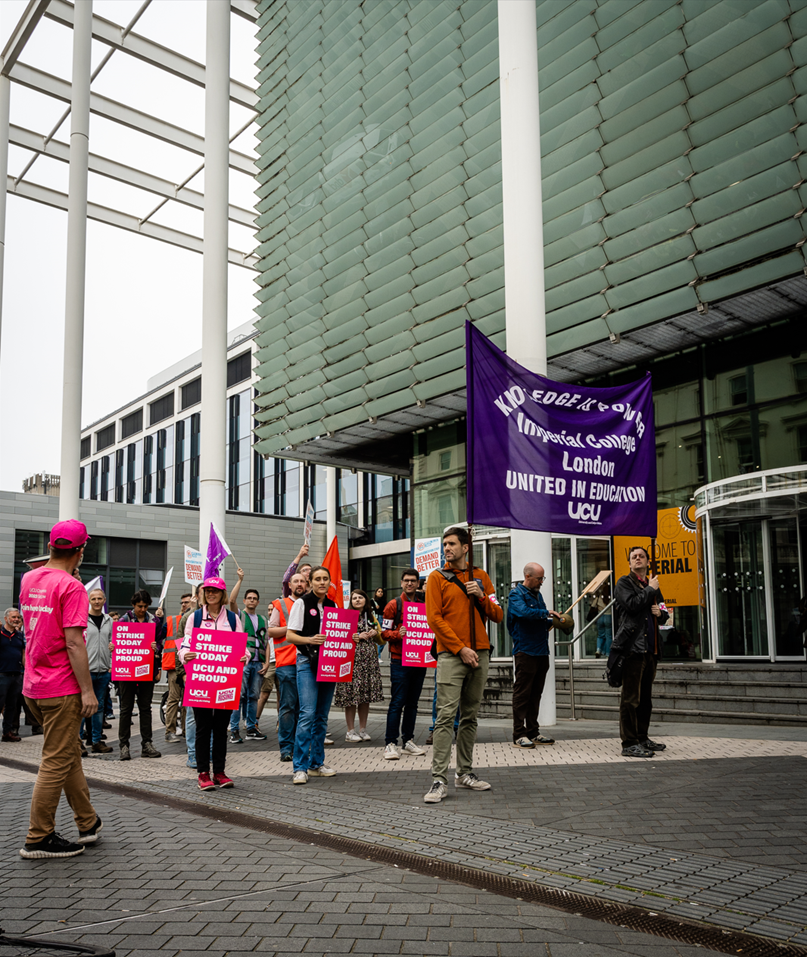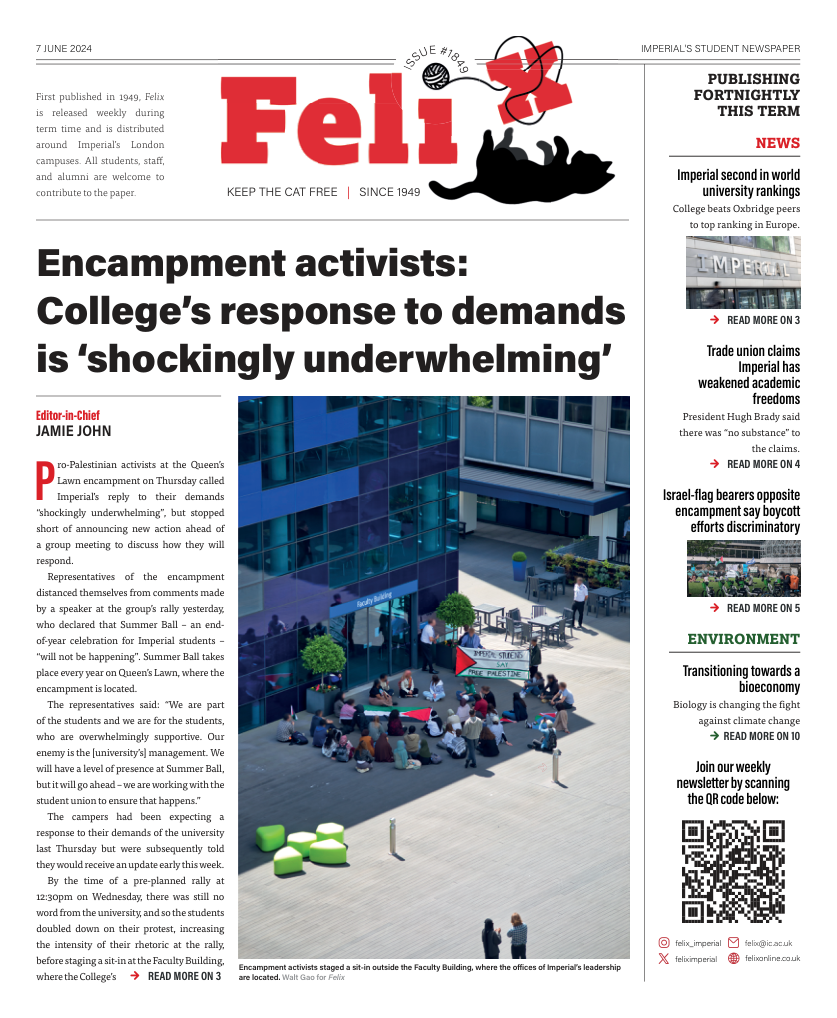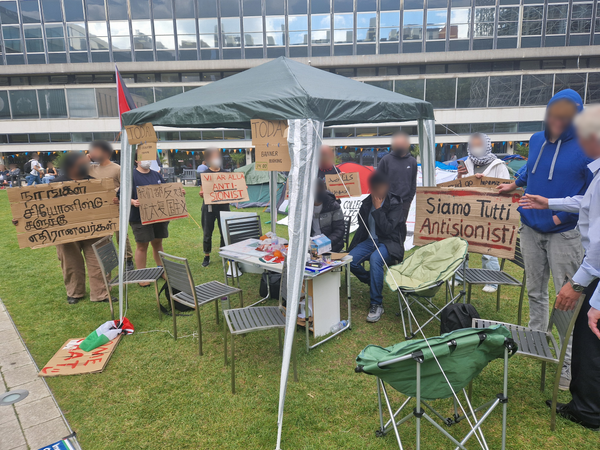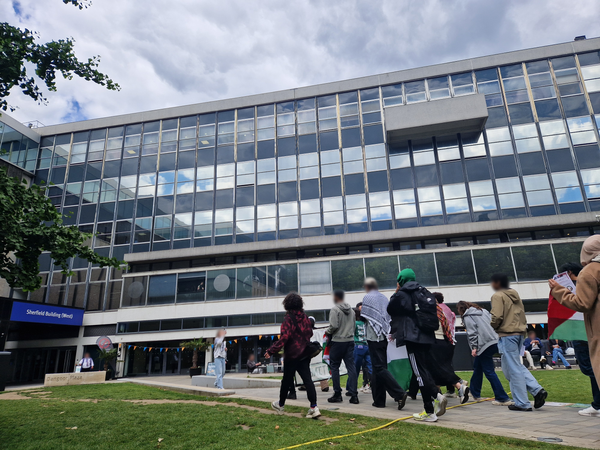Trade union claims Imperial ‘wilfully’ misled Privy Council and weakened academic freedoms
Imperial President Hugh Brady said there was “no substance” to the claims.

The Imperial-affiliated branch of a trade union has accused Imperial College London of intentionally misleading a body of advisors to the King and weakening academic freedoms.
Imperial UCU, which represents members of the University and College’s Union (UCU) at Imperial, says that the university has ‘pushed through amendments to the College Statutes’ that allow it to ‘more readily make changes to staff academic freedoms’.
The College incorrectly claimed that there was ‘no opposition’ to its proposals in a cover sheet submitted to the Privy Council – advisors to King Charles III who subsequently ratified the changes.
A document sent together with the cover sheet did acknowledge objections had been raised, but Imperial UCU alleges that the university ‘provided a misleading, truncated and inaccurate overview of the dialogue’.
Imperial says it is committed to academic freedom and has no intention of reducing or weakening protections around it.
The Privy Council was alerted to the cover-sheet error and corrected it, requiring no further action from the College.
In his monthly video conference with staff in May, Imperial President Hugh Brady said there was “no substance” to the claims. “We have no intention of making any changes to our commitment to academic freedom, and even if we did, we’d have to go through a full consultation process on the matter.”
Why is Imperial UCU claiming academic freedoms have been weakened?
The College has moved a series of provisions enshrining academic freedoms for staff from the College Statutes to the College Ordinances.
The provisions remain effectual, but Imperial UCU claims that by moving them out of the Statutes, the College has permitted itself to ‘adjust or remove [them] with relative ease’ in the future.
In order to amend the College Charter or Statutes – which together set out how the university is governed – Imperial must gain the consent of the Privy Council.
But changes to the Ordinances, says the trade union, ‘are comparatively simple’ to make and ‘can be signed off by the College’s internal governing body without external approval.’
The Ordinances can be amended by Imperial College Council, Imperial’s governing body, which consists of College leadership, Imperial staff and students, and external figures from the world of business.
To change Ordinances related to ‘an academic or teaching matter’, College Council must additionally seek the ‘the views of the Senate’, a separate body consisting of top academic staff, elected members from each faculty, and student union representatives.
Legal protections
Academic freedom is protected by several laws. Legal protections for academic freedom are outlined in Article 10 of the European Convention on Human Rights, the Higher Education and Research Act 2017, and the Higher Education (Freedom of Speech) Act 2023.
Article 7 of Imperial’s Charter also protects academic freedom for staff at the College. It says: ‘Academic staff shall have freedom within the law to question and test received wisdom, and to put forward new ideas and controversial or unpopular opinions, without placing themselves in jeopardy of losing their jobs or privileges.’
However Imperial UCU argues that these regulations do not provide the level of protection afforded by the provisions that were moved out of the College Statutes and into the Ordinances.
The provisions moved to the Ordinances state that Imperial will apply academic freedoms as defined in a 1997 UNESCO document entitled, ‘Recommendation concerning the Status of Higher-Education Teaching Personnel’.
The UNESCO document contains 19 pages on the roles, rights, and freedoms of higher-education teaching personnel, and the organisations that represent them.
It says that academic staff ‘have the right to teach without any interference, subject to accepted professional principles,’ and affirms their ‘right and opportunity… to take part in [university] governing bodies’.
Writing on its website, Imperial UCU said: ‘These are major protections to academic freedom within Imperial College, and were rightly enshrined within the Statutes.
‘We have written to the Provost, President and head of HR outlining our concerns on many occasions [but] College management continue to assert that there is nothing to worry about.
‘We formally asked the College to approach Privy Council to reverse the changes, and to begin a proper staff consultation on the proposal, however they have declined.’
‘No opposition’
Imperial UCU first raised concerns upon being informed of Imperial’s intentions to amend the statutes in September last year.
Over the months that followed, Imperial UCU says ‘it became clear that there had been no consultation with College stakeholders on the matter.’
Minutes from a joint meeting on 2nd November reveal that Imperial agreed to a ‘more-in-depth conversation’ on the proposed changes with Imperial-affiliated trade unions.
A month later, and before holding a second conversation with the unions, the College informed Imperial UCU that it had received permission from the Privy Council to make the constitutional amendments.
‘This was extraordinary and troubling news,’ says Imperial UCU. ‘Not only had College management defaulted on a written agreement with one of its affiliated trade unions, but they had also managed to get the paperwork through Privy Council, which is something potentially difficult to reverse.’
In January 2024, the trade unions were sent a copy of the paperwork Imperial sent to the Privy Council. In its application, Imperial said it was consulting the trade unions on the academic freedom provisions.
The university claimed that ‘no opposition has been indicated,’ something it would later claim was a ‘technical’ issue.
The error was later corrected but Imperial UCU says: ‘It is clear that they have wilfully misled Privy Council in order to push the changes through.’









